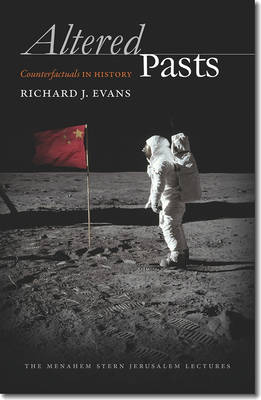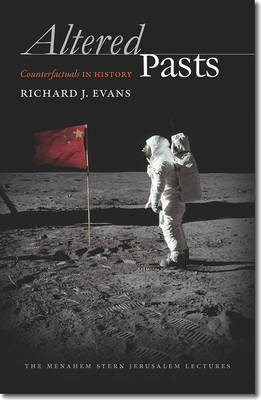
- Afhalen na 1 uur in een winkel met voorraad
- Gratis thuislevering in België vanaf € 30
- Ruim aanbod met 7 miljoen producten
- Afhalen na 1 uur in een winkel met voorraad
- Gratis thuislevering in België vanaf € 30
- Ruim aanbod met 7 miljoen producten
Zoeken
Omschrijving
A bullet misses its target in Sarajevo, a would-be Austrian painter gets into the Viennese academy, Lord Halifax becomes British prime minister in 1940 instead of Churchill: seemingly minor twists of fate on which world-shaking events might have hinged. Alternative history has long been the stuff of parlor games, war-gaming, and science fiction, but over the past few decades it has become a popular stomping ground for serious historians. The historian Richard J. Evans now turns a critical, slightly jaundiced eye on a subject typically the purview of armchair historians. The book's main concern is examining the intellectual fallout from historical counterfactuals, which the author defines as "alternative versions of the past in which one alteration in the timeline leads to a different outcome from the one we know actually occurred." What if Britain had stood at the sidelines during the First World War? What if the Wehrmacht had taken Moscow? The author offers an engaging and insightful introduction to the genre, while discussing the reasons for its revival in popularity, the role of historical determinism, and the often hidden agendas of the counterfactual historian. Most important, Evans takes counterfactual history seriously, looking at the insights, pitfalls, and intellectual implications of changing one thread in the weave of history. A wonderful critical introduction to an often-overlooked genre for scholars and casual readers of history alike.
Specificaties
Betrokkenen
- Auteur(s):
- Uitgeverij:
Inhoud
- Aantal bladzijden:
- 176
- Taal:
- Engels
- Reeks:
Eigenschappen
- Productcode (EAN):
- 9781611685374
- Verschijningsdatum:
- 4/02/2014
- Uitvoering:
- Hardcover
- Formaat:
- Genaaid
- Afmetingen:
- 140 mm x 216 mm
- Gewicht:
- 367 g

Alleen bij Standaard Boekhandel
+ 172 punten op je klantenkaart van Standaard Boekhandel
Beoordelingen
We publiceren alleen reviews die voldoen aan de voorwaarden voor reviews. Bekijk onze voorwaarden voor reviews.











